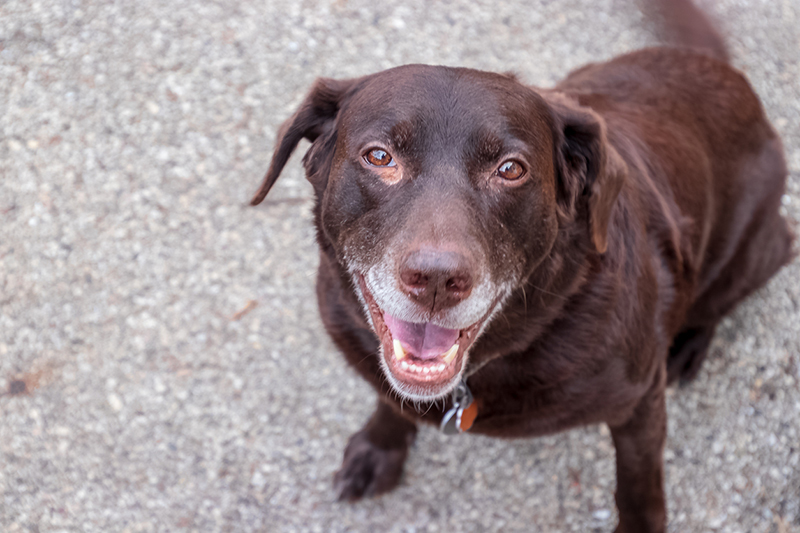
Vaccinating your pet is one of the easiest things you can do to help them live a long and healthy life.
Why Should I Vaccinate My Pet?
"I want my pet to live forever!" I can't tell you how many times I've heard this wonderful sentiment from my veterinary clients. Of course, living forever isn't a realistic goal, but there's a lot you can do to help your pet live a very long life. One of the things at the top of the list is vaccinating your pet. The importance of vaccines can’t be stressed enough. They've dramatically reduced the occurrence of painful and deadly diseases.
For instance, the rabies vaccine has nearly eliminated human deaths associated with this disease in the United States according to the Center for Disease Control (CDC). There are only one or two human deaths from rabies in the US compared to 59,000 annually in areas where the vaccine is not widely used. However, there are still hundreds of rabies cases in wild animals, such as bats, skunks, and raccoons, so it is important we continue to vaccinate our pets.
By vaccinating your pet, you’re protecting your pet from the suffering and death caused by these horrible diseases. Many of these diseases are highly contagious, and they can spread rapidly among animals and humans. This means you’re also protecting yourself, your family, your other pets, and your larger community by keeping your pet up-to-date on their vaccinations.
All of this is well worth the quick pinch of a shot.

How Do Vaccines Work?
Vaccines give the body a leg up when it comes to fighting off the disease. They contain antigens that resemble the organism that causes the illness. These antigens stimulate the immune system to produce antibodies, which then recognize and attack the organism if your pet is exposed in the future. It’s important to note that vaccines are inactivated and don’t cause the disease.
Are Vaccinations Painful?
Vaccines are not painful for your pet. They feel like the pinch from a needle you or I would experience when getting an injection at the doctor’s office. Some pets may be sore around the site of the injection for a short time afterward. You can apply a cold compress to the area to reduce your pet’s discomfort. You can also ask your veterinarian if a pet-safe pain medication would be helpful.
What Are the Side Effects of Vaccines?
As a vaccine stimulates the immune system, it can result in mild, short-term side effects like a low-grade fever or decrease in appetite. In less common cases, pets can have an allergic reaction. If your pet has any of these symptoms, you should contact your veterinarian immediately:
- Swelling of the face
- Hives
- Difficulty breathing
- Lethargy or reluctance to move
- Weakness
- Repeated diarrhea or vomiting within 48 hours after vaccination
Some pets may also develop a small swelling at the site of the vaccination. It should disappear in a few weeks. If it lasts more than that or appears to grow larger, visit your veterinarian.
In very rare instances, a cancerous tumor can develop at the injection site. The American Veterinary Medical Association (AVMA) notes that these cancers only happen in around 1 out of every 10,000 to 30,000 vaccinations and almost exclusively in cats.

What Are Core and Non-Core Vaccines?
Core vaccines are recognized as essential for every pet. This determination is based on factors including the risk of exposure, severity of the disease, and whether or not it can be transmitted from pets to humans.
Non-core vaccines may be beneficial to your pet depending on their environment and lifestyle. The recommended core and non-core vaccines differ for dogs and cats.
What Vaccines Do Dogs Need?
Dogs should receive core vaccines to protect against these diseases:
- Canine parvovirus (parvo) – Parvo is commonly associated with puppies, and it can impact the heart or small intestines. Symptoms include bloody diarrhea, vomiting, fever, loss of appetite, depression, and tenderness around the abdomen.
- Distemper – Distemper is caused by a virus that affects the respiratory, digestive, and nervous systems. Symptoms include fever, a watery to pus-like eye discharge, runny nose, coughing, vomiting, head tilting, muscle twitches, and seizures.
- Canine hepatitis – A different virus causes this liver disease than hepatitis seen in humans. Symptoms include fever, vomiting, swelling around the face, bruising, jaundice (yellowish skin), and seizures.
- Rabies – This horrifying disease is transmitted through saliva, usually by a bite wound from an infected animal. Symptoms include behavior changes like fearfulness or aggression, excessive salivation, difficulty swallowing, staggering, paralysis, and seizures.
In addition, your veterinarian may recommend non-core vaccines for Bordetella bronchiseptica (kennel cough), Borrelia burgdorferi Lyme disease, Leptospirospirosis, and canine influenza.

What Vaccines Do Cats Need?
Cats should get core vaccines for the following diseases:
- Feline calicivirus (FCV) – This virus causes respiratory infections and oral disease in cats. Symptoms include sneezing, congestion, nasal discharge, and conjunctivitis, which is an inflammation of the membranes of the eyelids. It can also lead to very painful sores on the tongue and in the mouth.
- Feline herpesvirus type 1 (FHV-1 or rhinotracheitis) – FHV-1 is highly contagious, and it can spread rapidly in kennels, shelters, or homes with multiple cats. Symptoms include sneezing, nasal discharge, conjunctivitis, fever, and lack of appetite.
- Panleukopenia (feline distemper) – Feline distemper is not the same as canine distemper despite the name. This virus attacks the intestines, bone marrow, and lymph nodes. Symptoms include fever, vomiting, severe diarrhea, nasal discharge, and dehydration. It can also cause pregnant cats to abort their fetuses, result in severe birth defects, and damage the brains and eyes of young kittens.
- Rabies – You may be surprised to hear that rabies is more prevalent in cats than dogs according to the CDC. This makes rabies vaccinations especially important for our feline friends.
Your veterinarian may also recommend a non-core vaccine for feline leukemia virus.
Do Indoor Cats Need to Be Vaccinated?
All cats should be kept inside to help keep them safe from illnesses, scrapes with other animals, and accidents. And yes, they absolutely need to be vaccinated since they can get out of the house unexpectedly and come into contact with an infected animal.
They can also contract diseases from other pets in the home or animals that slip into your house, for instance, down an open chimney flue or through a broken window screen. I’ve occasionally had clients tell me about the surprise of finding a bat in the house or a visitor cat through a dog door!

How Often Should My Pet Be Vaccinated?
Your veterinarian will give you a vaccination schedule that’s appropriate for your pet. In general, puppies and kittens should start receiving vaccines at around eight weeks of age. They’ll typically get at least three vaccinations around three or four weeks apart. Adult dogs may receive certain vaccines each year and others every three years.
You can make sure your pet’s vaccinations stay up-to-date by scheduling a yearly check-up for your four-legged friend. An annual exam and common vaccines are covered if you add optional preventive care to an ASPCA Pet Health Insurance plan at a low additional cost. Get a free quote now.
The information presented in this article is for educational and informational purposes only and does not constitute or substitute for the advice of your veterinarian.
(opens new window)
Helpful resources for pet parents
Browse categories
-

Dog Behavior Problems and Training
How do you know when a dog’s behavior has gone from normal to being a problem? Find out!
-

Caring for Senior Dogs
Get tips to help take great care of an older dog.
-

Leash Up! Must-Have Dog Walking Gear and Accessories
Gear up for better walks with your pup! Discover essential dog walking accessories and gear to make every stroll a walk in the park.

Browse Categories
(opens new window)
